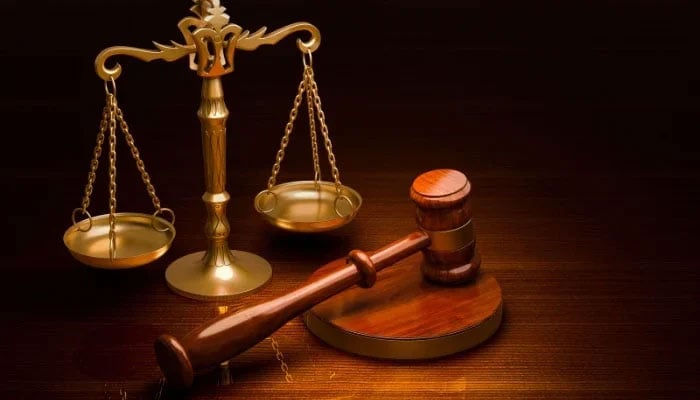.. by Barrister Asad Ul Mulk

It is practically impossible to apply the law with complete homogeneity. In all jurisdictions, dichotomy subsists. To resolve such contradictions, Professor Ronald Dworkin in the 1970s conceived the concept of the fictitious ‘Judge Hercules’. Today, Artificial Intelligence (AI) enables us to bring ‘Judge Hercules’ to life.
Even when the facts are clear, judges may disagree regarding the ruling. This is demonstrated by the appellate or review process when decisions of the lower courts are overturned or modified and when there are split decisions by larger benches. This divergence exists because judges may mis-appreciate the law. The dichotomy has its roots in the identification, appreciation, reconciliation, evaluation and application of the law, which according to Dworkin necessitates the exercise of ‘judicial interpretation’ and the availability of a ‘theory of adjudication’ at the disposal of the judge.
Some judges are less aware than others of the law in its totality, and no one can be fully aware. This variation in comprehension is responsible for many diverging conclusions. The panacea, according to Dworkin in his book ‘Taking Rights Seriously’ (1977), is ‘Judge Hercules’. A judge of “super human skill, learning, patience and acumen”, ‘Judge Hercules’ is supposed to be aware of all legislative instruments, precedents, the political morality of the legal system, and able to construct a ‘theory of adjudication’ which reconciles all the laws and justifies the use of ‘principles’ in ‘hard cases’.
In six succeeding books – ‘The Philosophy of Law’ (1977), ‘A Matter of Principle’ (1985), ‘Law’s Empire’ (1986), ‘Life’s Dominion’ (1993), ‘Freedom’s Law’ (1996) and ‘Sovereign Virtue’ (2000) – Dworkin takes great pain to explain how ‘Judge Hercules’ would approach ‘hard cases’: cases regarding the outcome of which even reasonable judges may disagree.
For decades, ‘Judge Hercules’ was relegated to the annals of theoretical jurisprudence. However, a multitude of developments in machine learning algorithms, transformer neural networks and generative artificial intelligence have led to the development of chatbots like ChatGPT, Google Gemini, Perplexity AI etc. The writing is on the wall. In the future, an AI system exclusive to the law should be developed which should possess all the near omnipotent and infallible traits of ‘Judge Hercules’.
This new AI-driven ‘Judge Hercules’ should, to begin with, be most useful when during the course of adjudication ‘value judgment’ is minimum or non-existent. Dworkin terms these cases of ‘fit’. Cases of ‘fit’ are those where the law is settled by past precedent, in line with constitutional and statutory texts and compatible with the institutional history.
A palpable example would be the limitation period governing an application under Order IX, Rule 13 of the Code of Civil Procedure, 1908 to set aside as ‘ex-parte decree’ after the applicant has joined proceedings, but later absented himself. Is limitation governed by Article 164 or 181 of the First Schedule of the Limitation Act, 1908 and thus respectively 30 days or three years? The authoritative Supreme Court ruling on this point is Honda Atlas v Honda Sarhad (2005 SCMR 609) which holds that Article 164 applies and thus the limitation is 30 days.
Yet despite the settled nature of the law, lower courts readily entertain pleas and erroneously apply Article 181. In such cases, an AI-driven ‘Judge Hercules’ would prove very proficient. The law is settled, no value judgment is required, and so ‘Judge Hercules’ would identify the case as one of ‘fit’ and mechanically apply the law.
The very fact that lawyers cite controlling precedents on a daily basis goes to show that the vast majority of cases or issues are of ‘fit’, where ‘Judge Hercules’ should not fail us.
Conversely there will be cases of ‘substance’, according to Dworkin. These are cases where there is no clear controlling precedent, and the law requires the interpretation of ‘moral language’ employed in constitutional or statutory text or the application of moral principles on the touchstone of legal theory.
Cases involving the interpretation of Article 203 of the constitution of Pakistan have produced conflicting rulings, with some holding that the ‘supervisory jurisdiction’ of the high courts over subordinate courts is ‘administrative’ in nature, and others holding that it is ‘judicial’ as well. Such cases are no different from the Anglo-American cases of Riggs v Palmer (1889), Henningson v Bloomfield (1960) or Mcloughlin v O’Brian (1983) and fall in a category where we should be more careful in employing an AI-driven ‘Judge Hercules’ until we are sure of the infallibility of the underlying legal theory that drives its reasoning.
Nevertheless, in cases of ‘fit’, we should welcome the arrival of an AI-driven ‘Judge Hercules’, much like the DRS system in cricket.
The writer is a legal practitioner. He can be reached at: [email protected] .. Source